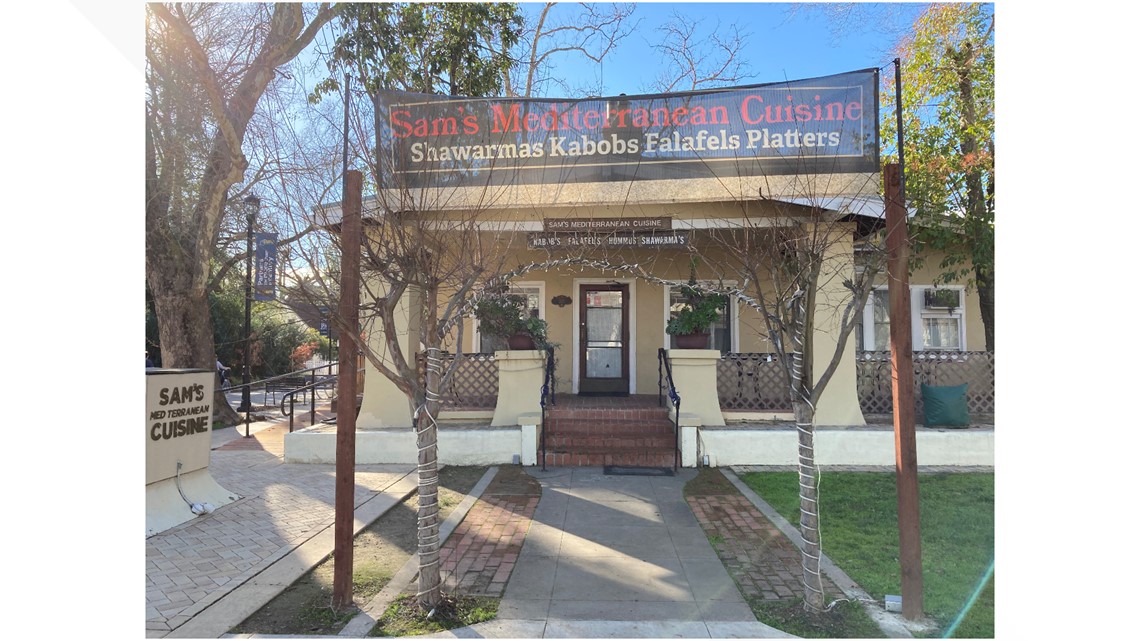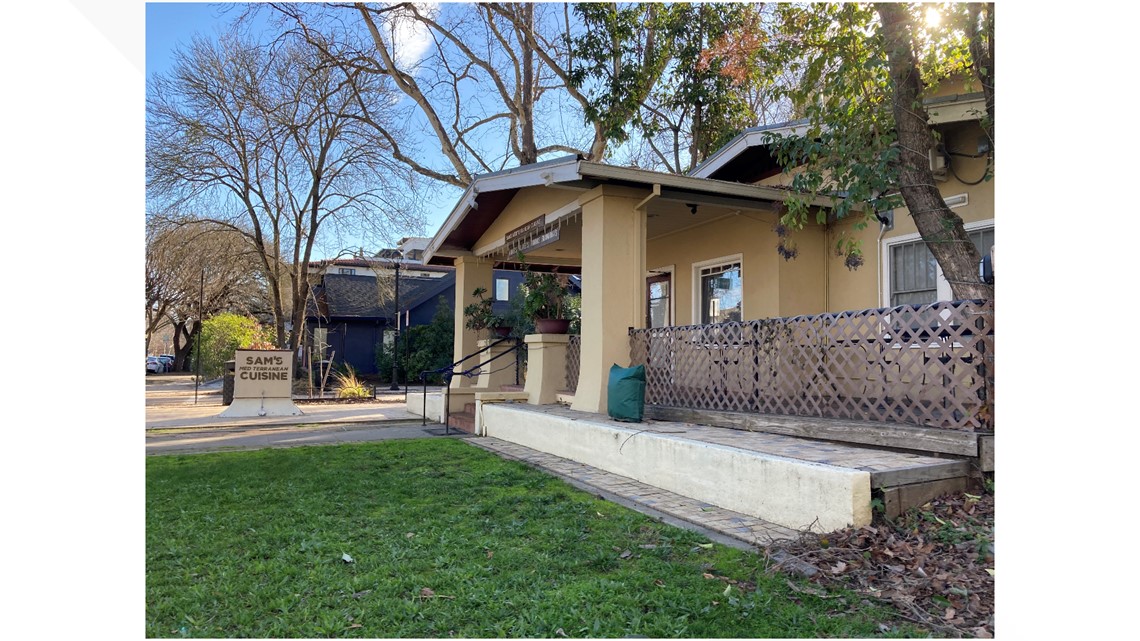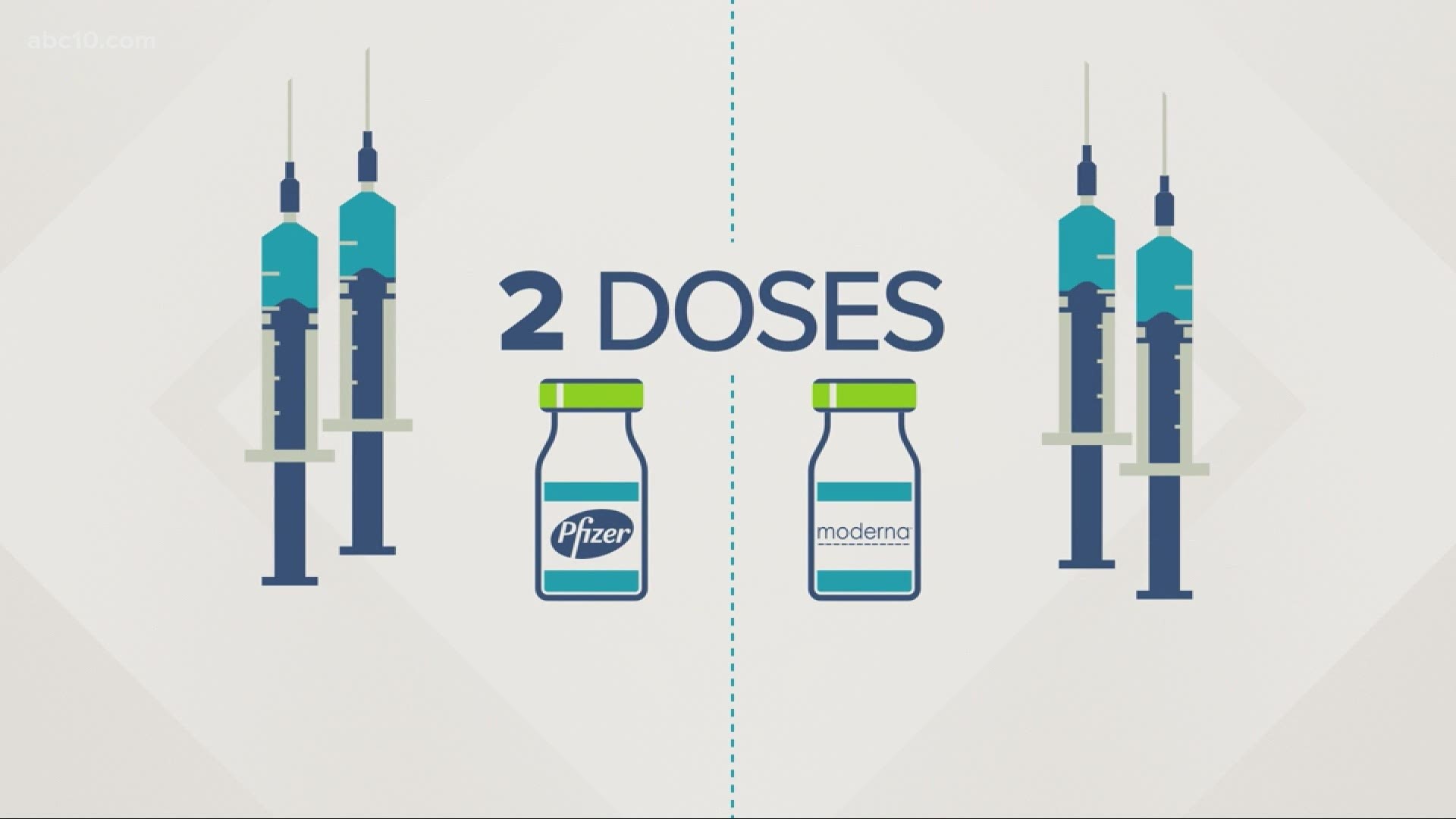DAVIS, Calif. — In the wake of a tragedy, the Davis community has shown an outpouring of support for a family — and local business — in need during the coronavirus pandemic.
Sam's Mediterranean Cuisine, a staple in Downtown Davis, has been closed throughout the pandemic. Samir Abughannam, better known around town as Sam, had closed the restaurant indefinitely after his wife, Sue, had fallen ill and later passed away from leukemia on Dec. 20.
Sue and Sam have run the restaurant together since 1995. Compounding on the substantial loss of a loved one, Sam was left with back rent on the building where his restaurant sits.
So, not knowing where else to go, Sam turned to the Davis community with overwhelming results.
"We understand that…it is the virus and everybody's going through a hard time, not just us, you know," said Rawan (Ro) Abughannam, Sam and Sue's daughter. "There's people who've lost their jobs. There's people who are financially struggling, mentally not well, you know, and to see that even in other people's hard times, that they're still defending us and supporting us and rallying behind us. It's, it's overwhelming."
A GoFundMe to "Save Sam's Restaurant" has raised over $150,000 as of Feb. 1, and is still receiving donations.
"That's true, caring, you know?" Sam said, "And it's unforgettable, unforgettable. You know, everybody's standing shoulder to shoulder next to us."
But behind the positive news for the restaurant, a family still grieves, burdened by what they feel was a lack of transparency or empathy from a hospital system bogged down by COVID-19.
Sue went into remission in 2019 for leukemia, but was diagnosed again with the cancer a few months later. The family was told she could continue with chemotherapy, or do a stem cell treatment at Stanford Health Care during the summer of 2020.
For a while the treatment seemed to be working according to Sue's doctors at Stanford Health, until suddenly it wasn't. Sam said the doctors told them that his wife had been infected during the transfusion with cytomegalovirus (CMV), a relatively common virus that can cause problems for people who are immunocompromised, like Sue. In practically the same breath according to Sam, the doctors told him that Sue's leukemia had returned and had mutated.
After 66 days of nothing but positive news, Sam said the doctors were now saying Sue had a week, if not days to live.
"They sent her home to die and they sent her home for us to take care of her. And we didn't know how to," Ro said.
ABC10 reached out to Stanford Health Care for a statement. This was their response:
Stanford Health Care always endeavors to provide the safest, highest quality care and experience to every patient and family. We recognize that each patient’s and family’s journey is unique. Our Patient Relations team is available to anyone who wishes to discuss their care or experience. Patient privacy laws restrict us from commenting on any individual patient’s experience.
Despite a much shortened time table for the family, Sue actually outlived that prognosis from Stanford Health by a couple of months. However, she was admitted to the intensive care unit at Kaiser Vacaville by December 2. It was at the beginning of the extreme squeeze on hospital resources in California as coronavirus cases and hospitalizations rose at an alarming rate. Only a week after Sue was admitted, the Greater Sacramento Region would trigger a stay-at-home order when ICU capacity fell below 15%.
The impact was devastating. Sue could no longer have in-person visitors. The family communicated mostly through telephone and said they felt frustrated by the inability to care for their loved one. It was exacerbated by the fact that, according to Sam, not even Sue's oncologist had been aware that her leukemia had returned and was worse than before.
"If we're not doing our own research and keeping up and advocating like, she would have been gone a long time ago, because there's just such, you know, miscommunication," Ro said.


Ro said that the telecommunication problem came to a head when she was unable to get in contact with Sue or Sue's doctors for a full day. Ro said a receptionist told her she didn't need to call so much to check on her mom, but nervous about Sue's condition and unable to do anything else, the family continued to try to get in contact via telephone.
"And eventually my dad was able to get in contact with my mom and my mom goes, Why didn't anybody call me all day?" Ro said.
That was on Dec. 18, two days before her mother's passing. At the time, California doctors said increasingly desperate California hospitals were being “crushed” by soaring coronavirus infections.
"The health care system…patients, you know, need love, and they need support, and they need encouragement, and they need their families there," Ro said. "And they don't have that right now."
ABC10 reached out Kaiser Permanente for a statement. This was their response:
Our sympathy and hearts go out to the Abughannam family on their loss of their loved one. Out of respect for patient privacy, we cannot discuss an individual’s care. We take the concerns of our patients and families very seriously. Our physicians and care teams are committed to resolving any questions families may have about their loved one’s care.
Throughout the COVID-19 pandemic, our hospitals have continued to provide our patients with safe, high quality care, including treatment and care for those with cancer and other urgent or emergent conditions. As visitors are restricted for safety reasons during the pandemic, our staff has helped facilitate communication between patients and their families by phone and video whenever possible, and we make exceptions for visitors for compassionate reasons, such as at the end of life.
Sam was with Sue when she passed on Dec. 20. Even as the family grieves the loss of their beloved wife and mother, they also gather strength from the recent outpouring of support from the community.


Ro said seeing the incredible influx of funding for her family's restaurant is "like a breath of fresh air" after weeks of frustration and loss.
"I think when you go through something that's like an emotional rollercoaster, where someone's health is in your hands, and you keep promising them, they're going to live a long life, because that's what everybody else is telling you…and I think we got to a point where we were feeling helpless and hopeless, and alone in our fight," Ro said. "And once, you know, we started receiving all this support, like the messages, the cards, the flowers, it just kind of like restores your faith in humanity."



















